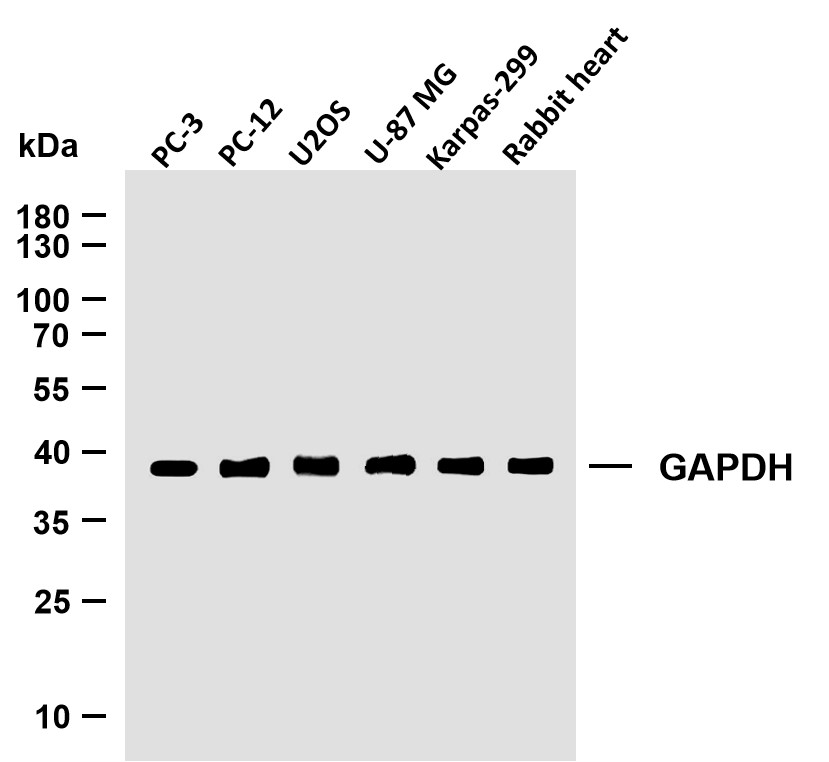
Catalog: YM6692R
Size
Price
Status
Qty.
10mL
$150.00
In stock
0
6mL
$120.00
In stock
0
3mL
$70.00
In stock
0
Add to cart


Collected


Collect
Main Information
Target
Napsin A
Host Species
Mouse
Reactivity
Human, Mouse
Applications
IHC
Conjugate/Modification
Unmodified
Detailed Information
Recommended Dilution Ratio
Ready to use for IHC
Formulation
The prediluted ready-to-use antibody is diluted in phosphate buffer saline containing stabilizing protein and 0.05% Proclin 300
Specificity
The antibody can specifically recognize human Napsin A protein.
Purification
The antibody was affinity-purified from ascites by affinity-chromatography using specific immunogen.
Storage
2°C to 8°C/1 year,Ship by ice bag
Modification
Unmodified
Clonality
Monoclonal
Clone Number
ABT-ASP4
Isotype
IgG1,Kappa
Related Products
Antigen&Target Information
Immunogen:
Synthesized peptide derived from human Napsin A AA range: 100-200
show all
Specificity:
The antibody can specifically recognize human Napsin A protein.
show all
Gene Name:
NAPSA NAP1 NAPA
show all
Protein Name:
Napsin A
show all
Other Name:
Napsin-A ;
Aspartyl protease 4 ;
ASP4 ;
Asp 4 ;
Napsin-1 ;
TA01/TA02 ;
Aspartyl protease 4 ;
ASP4 ;
Asp 4 ;
Napsin-1 ;
TA01/TA02 ;
show all
Background:
This gene encodes a member of the peptidase A1 family of aspartic proteases. The encoded preproprotein is proteolytically processed to generate an activation peptide and the mature protease. The activation peptides of aspartic proteinases function as inhibitors of the protease active site. These peptide segments, or pro-parts, are deemed important for correct folding, targeting, and control of the activation of aspartic proteinase zymogens. The encoded protease may play a role in the proteolytic processing of pulmonary surfactant protein B in the lung and may function in protein catabolism in the renal proximal tubules. This gene has been described as a marker for lung adenocarcinoma and renal cell carcinoma. [provided by RefSeq, Feb 2016],
show all
Function:
Function:May be involved in processing of pneumocyte surfactant precursors.,similarity:Belongs to the peptidase A1 family.,tissue specificity:Expressed predominantly in adult lung (type II pneumocytes) and kidney and in fetal lung. Low levels in adult spleen and very low levels in peripheral blood leukocytes.,
show all
Cellular Localization:
Cytoplasmic
show all
Tissue Expression:
Research Areas:
>>Lysosome
show all
Signaling Pathway
Reference Citation({{totalcount}})
Catalog: YM6692R
Size
Price
Status
Qty.
10mL
$150.00
In stock
0
6mL
$120.00
In stock
0
3mL
$70.00
In stock
0
Add to cart


Collected


Collect
Recently Viewed Products
Clear allPRODUCTS
CUSTOMIZED
ABOUT US
Toggle night Mode
{{pinfoXq.title || ''}}
Catalog: {{pinfoXq.catalog || ''}}
Filter:
All
{{item.name}}
{{pinfo.title}}
-{{pinfo.catalog}}
Main Information
Target
{{pinfo.target}}
Reactivity
{{pinfo.react}}
Applications
{{pinfo.applicat}}
Conjugate/Modification
{{pinfo.coupling}}/{{pinfo.modific}}
MW (kDa)
{{pinfo.mwcalc}}
Host Species
{{pinfo.hostspec}}
Isotype
{{pinfo.isotype}}
Product {{index}}/{{pcount}}
Prev
Next
{{pvTitle}}
Scroll wheel zooms the picture
{{pvDescr}}



















